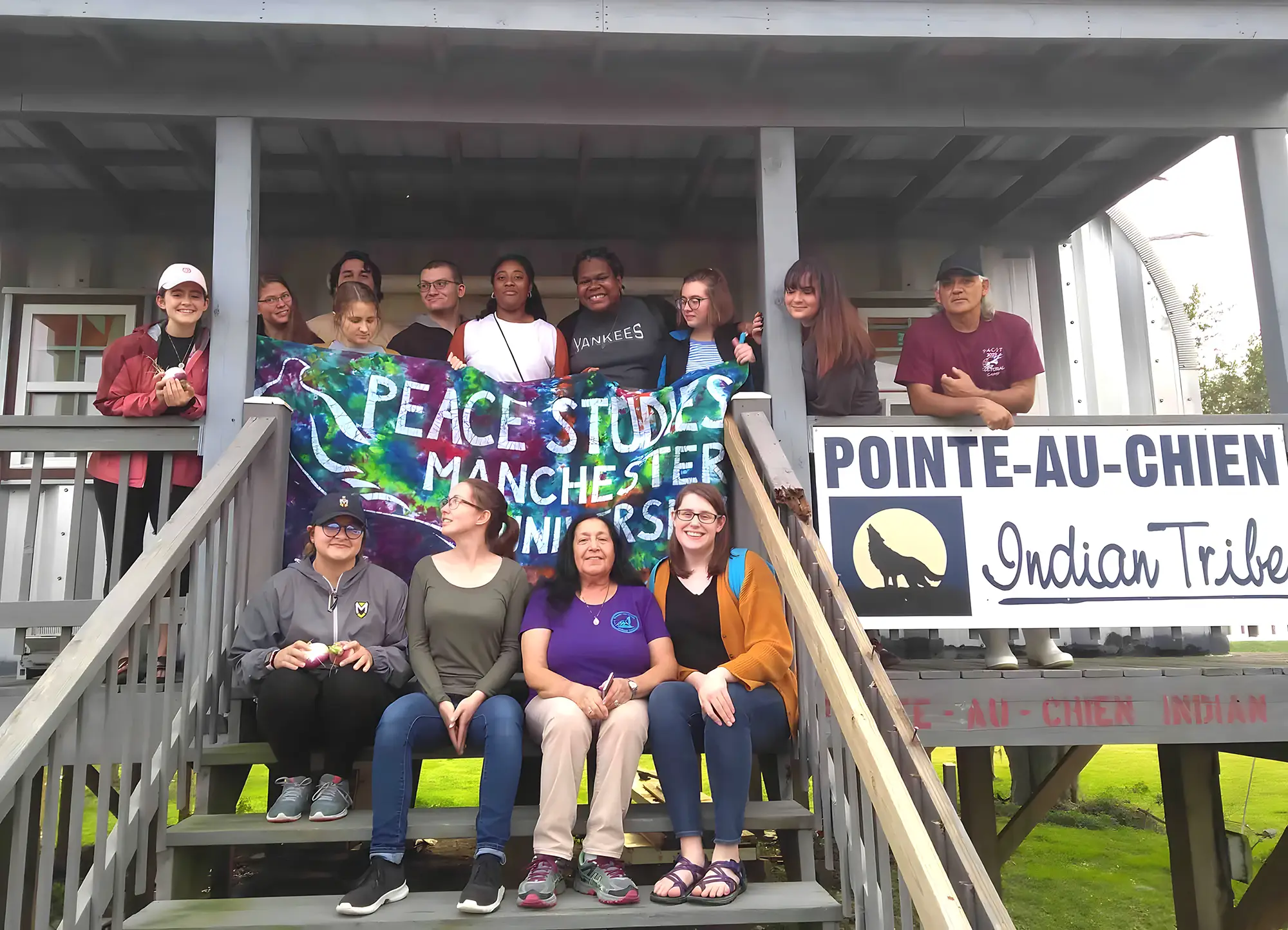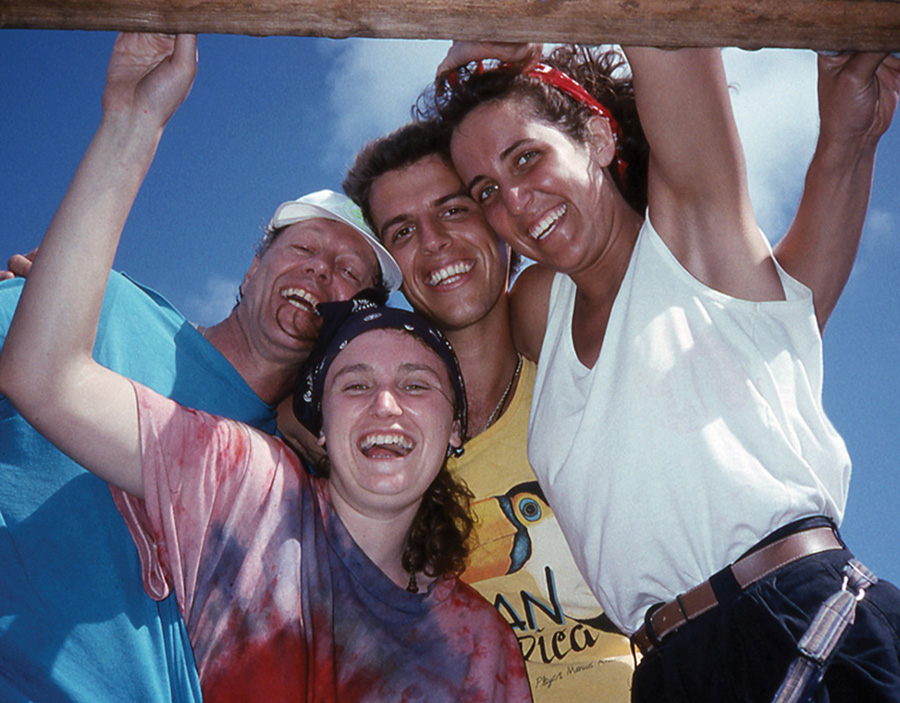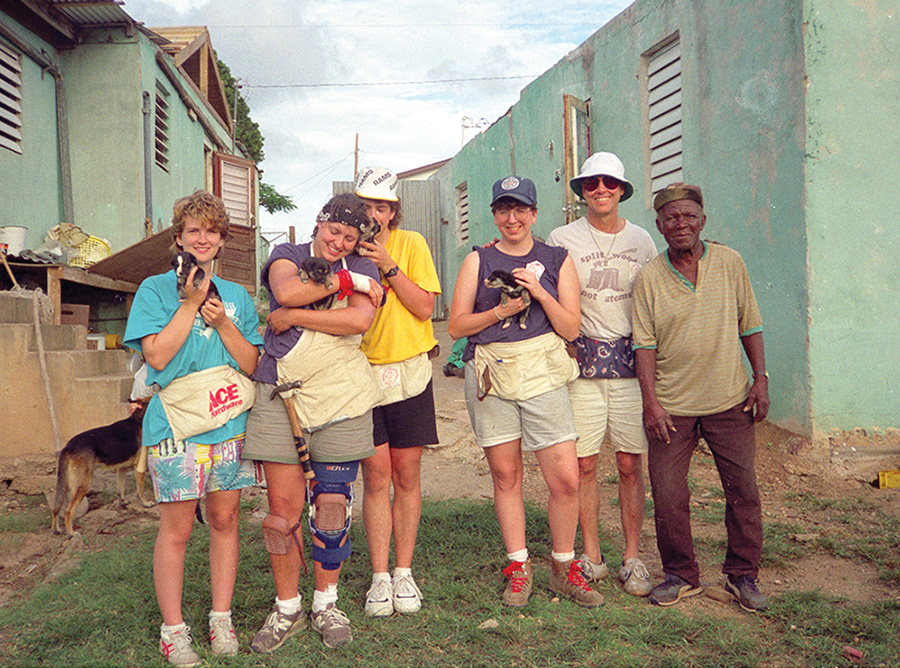

n 1970, Manchester switched from a quarter system of three 12-week terms to a 4-1-4 calendar with a three-week January interim. This provided an ideal opportunity for off-campus immersive study and travel. That shift also changed the life of Manchester Professor Kenneth Brown, a national peace studies pioneer who directed the peace studies program at Manchester.
He went on to lead study trips on 32 of those interim January sessions, traveling with small groups of students. The goal, he said, was expanding global awareness through involvement in service, peace and justice issues.
“We sought activities that drew us away from a tourism perspective,” he said in a 2010 speech in Japan. “We witnessed the deep poverty of Haiti, living in an orphanage in Port au Prince. We picked coffee beans on the steep mountainsides of struggling growers in Chiapas, Mexico. We listened to the agony of widows, nearly deaf from shelling and heartbroken from losing husbands and children to U.S.-sponsored Contra attacks in Nicaragua, where we helped build cooperatives and houses during four Januarys in the 1980s.”
He took students to Northern Ireland to learn about civil strife there and traveled to the U.S. South to examine the civil rights movement at home.
“We studied at the Gandhi Institute near his Wardha Ashram in central India. We’ve crawled through the Viet Cong tunnels dug outside Ho Chi Minh City during the American war in Vietnam; and meditated in the field at Mi Lai where villagers were murdered by U.S. troops. We have built Habitat for Humanity houses in Jamaica and in Texas near the Mexican border, and we re-roofed hurricane-damaged houses in the Caribbean,” he said. “I cannot overstate the importance of such experiences in bonding with students who seek ways to change the world and change ourselves in a consumer-driven age. It is education of the heart as well as of the head. It has been my life.”
BOTTOM: In 1990, peace studies volunteers traveled to St. Croix in the U.S. Virgin Islands, replacing roofs after Hurricane Hugo.
“These intersessions encourage students to explore a larger world and their own assumptions about it,” she said. They learn about conflicts and injustice, and what actions will make a difference.
In recent years, domestic trips have been interspersed with international travel, she said. Groups traveled to New Orleans in 2020, civil rights sites in 2022, and to Florida in 2023, in a collaboration with environmental studies to study climate disruption.
Every effort is made to make trips affordable. January travel courses and other peace studies trips are supported by gifts dedicated to these purposes.
What does the future hold? In January 2024, Kenya is the destination, at the invitation of Manchester graduate Angi Yoder-Maina ’94.
As for January 2025, the peace studies director says that she welcomes all suggestions.

